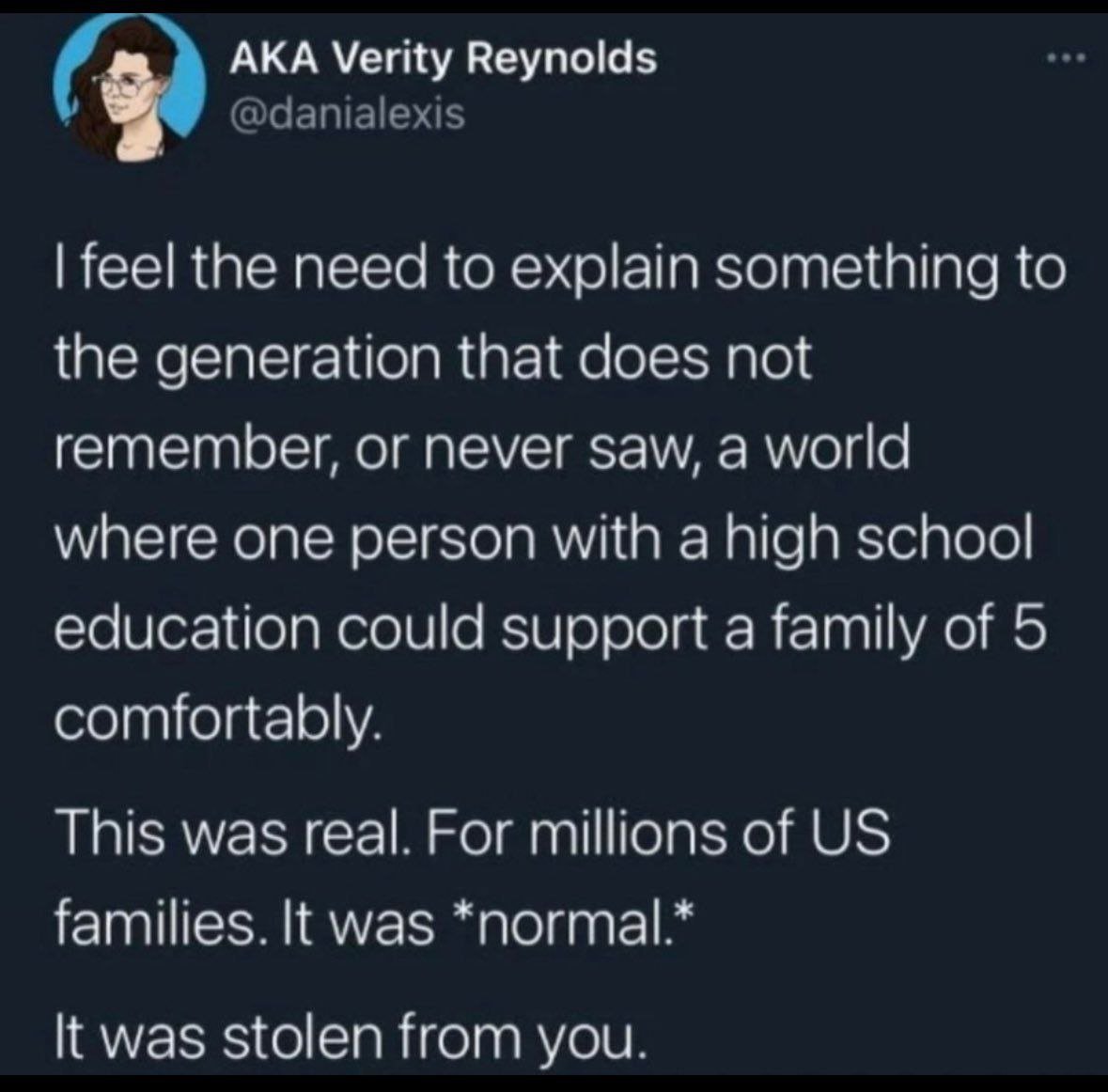Here's what's changed
- The market has collapsed into a few companies. That means that monopolistic forces are in nearly full force
- Labor unions have been severely weekend. In the 60s almost out of fear companies were practicing "corporate charity" to try and keep employees from unionizing. They've lost that fear.
- Regulations around corporate stock price manipulation have been all but eliminated. Buybacks use to be illegal because they allow a company to artificially inflate their stock completely unrelated to the actual performance of the company.
- Social safety nets have been gutted or underfunded.
- Public education has been destroyed. We used to have a fairly robust public university system that's been uber privatized with funding reduced to almost nothing.
- Hospital systems have consolidated as has insurance agencies which not only drives up the price of medical care, it drives down the wages of doctors and nurses while keeping them as minimally staffed as possible. This translates into terrible care that fucks you over when you need any medical work done.
